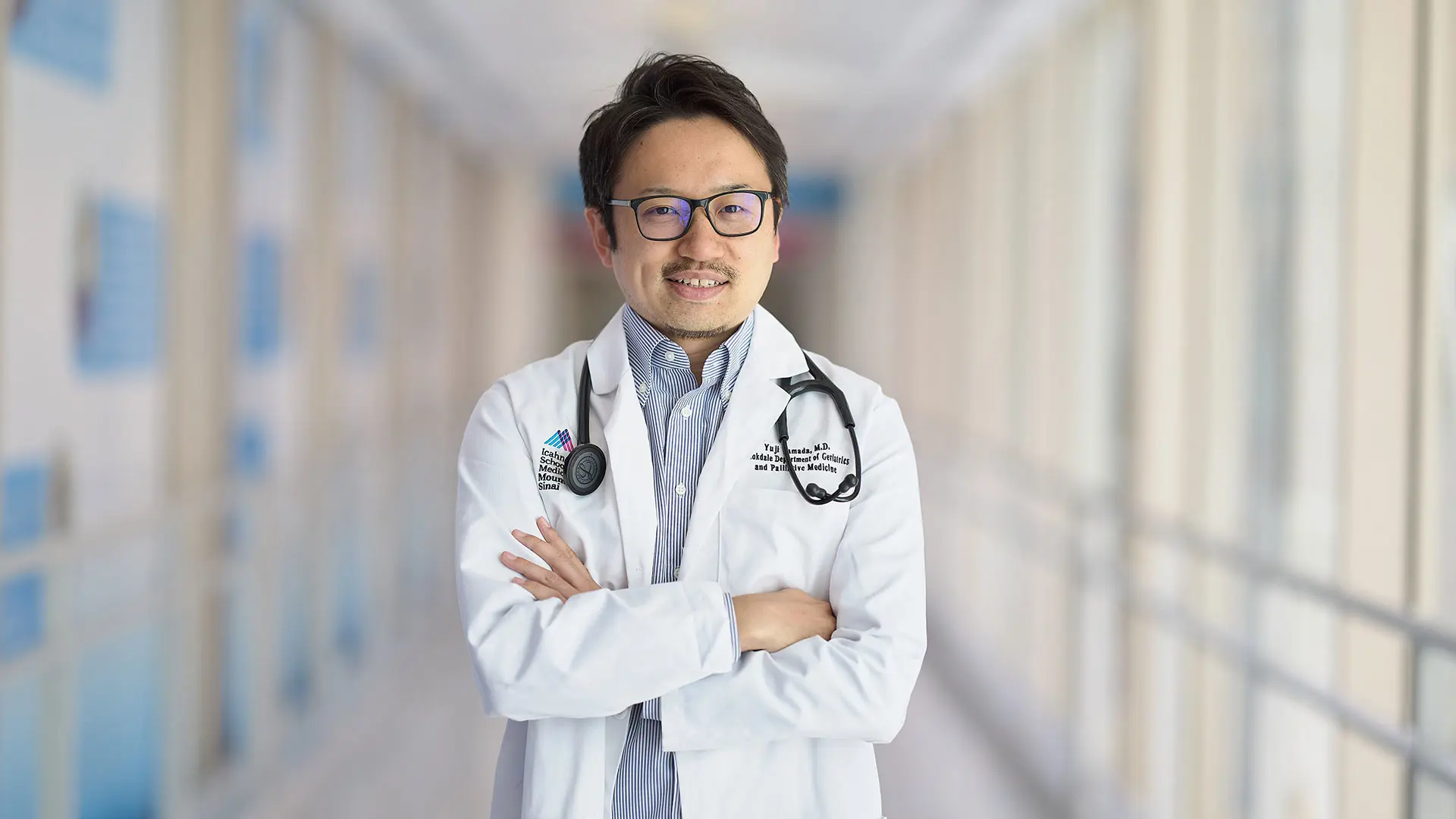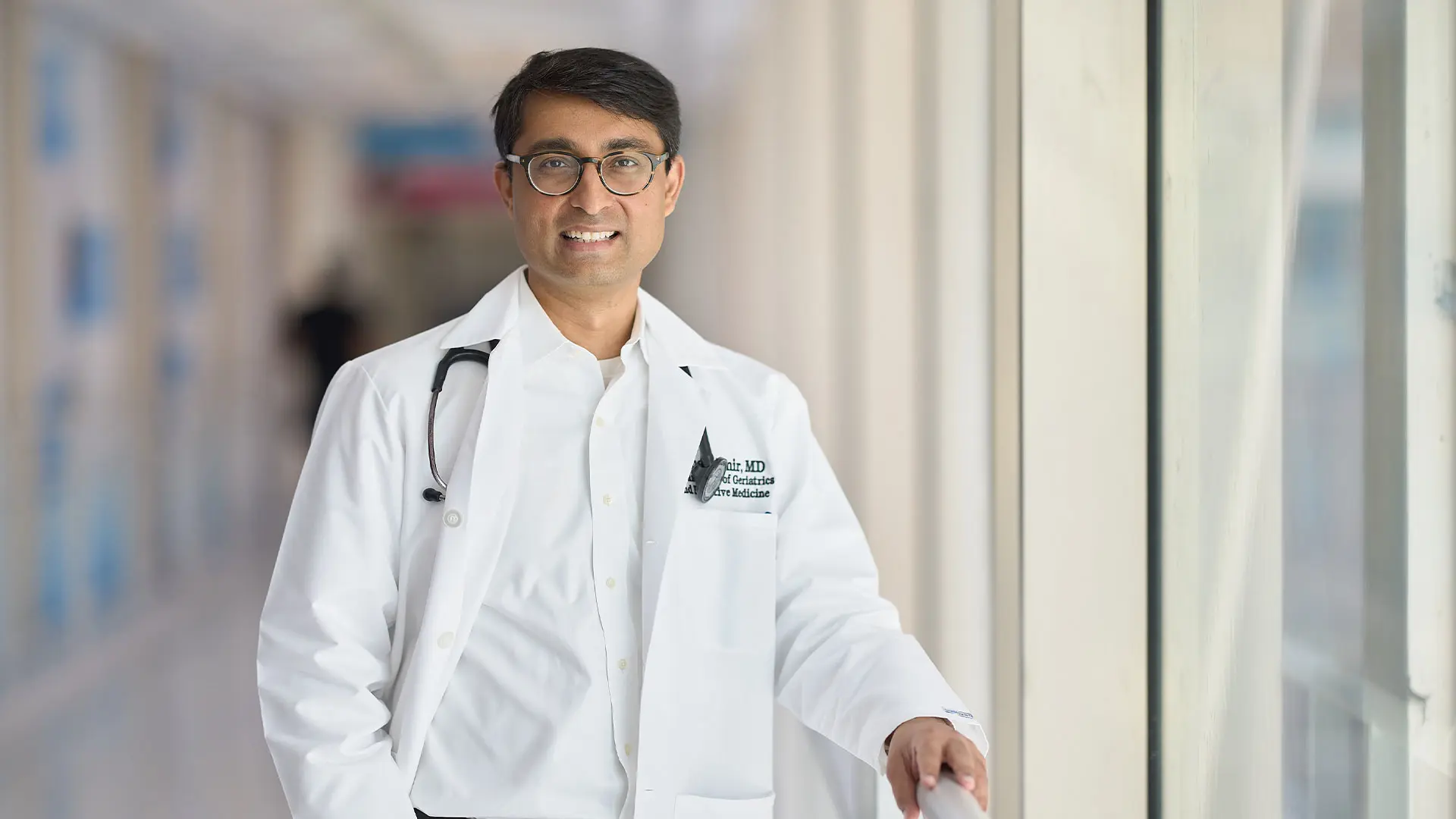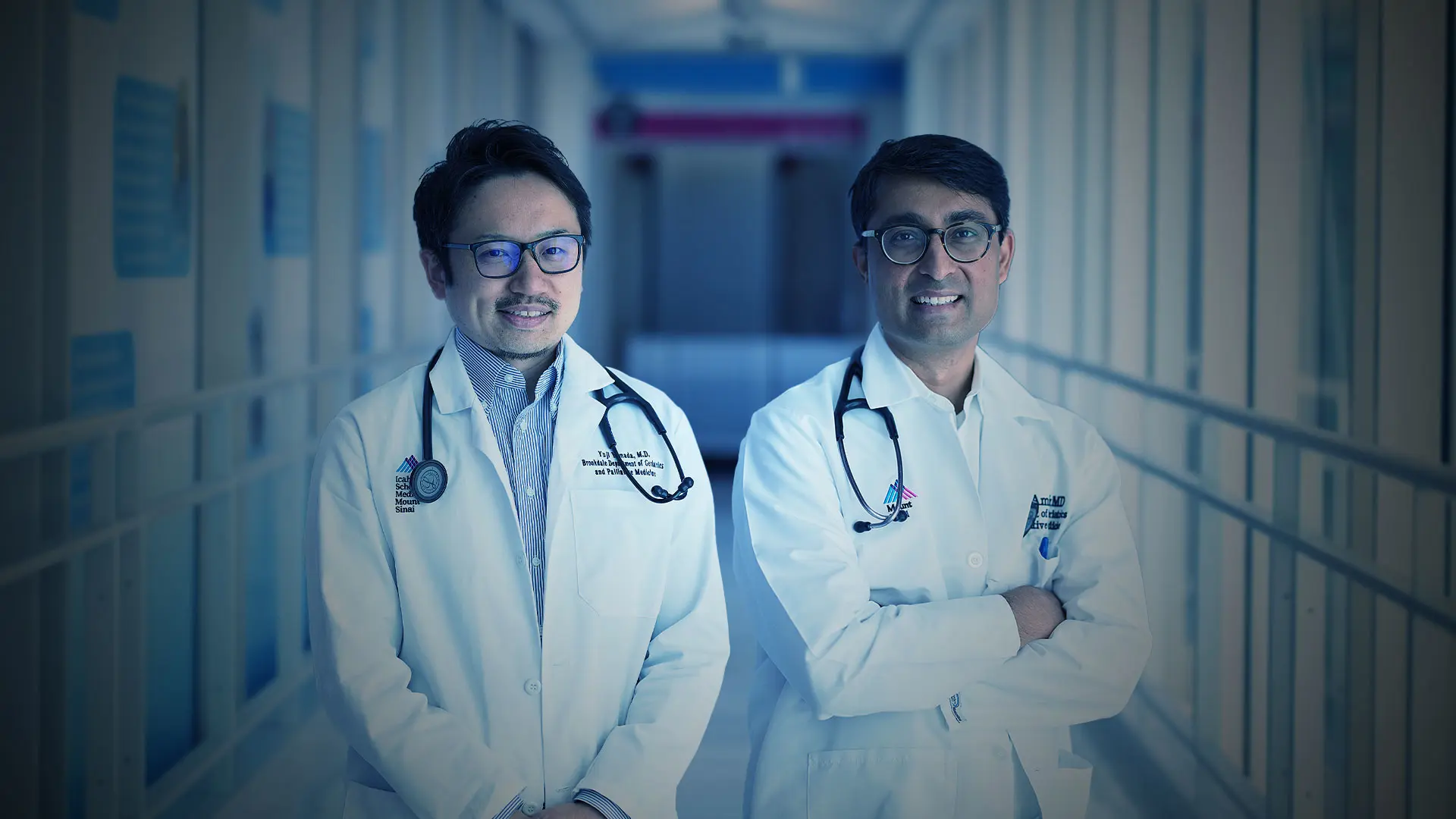At Mount Sinai Morningside, older adults who have experienced physical trauma can expect comprehensive care that extends beyond simply caring for their injuries.
Through an innovative program launched in October 2022, more than 200 individuals 65 and older who have arrived at the hospital with trauma, such as a hip fracture or fall-related brain injuries, have received care from specialist teams working together to ensure their optimal recovery. Trauma surgeons attend to the injuries, while geriatric specialist teams comprehensively manage their other medical and functional needs. More recently, the program has been expanded to The Mount Sinai Hospital’s orthopedics department, as well.
This “co-management” model has been gaining ground in recent years, with the recognition that comorbidities such as cardiovascular disease, diabetes, and cognitive impairment are extremely common in older adults and may worsen during the experience of traumatic injury and hospitalization if not managed appropriately. Moreover, many other complications can arise in the hospital setting due to the stress of injury.

Trauma surgeons and geriatric specialists "share the responsibility of care and deliver better outcomes for our patients,” says Yuji Yamada, MD, Assistant Professor, Brookdale Department of Geriatrics and Palliative Medicine.
“Older adults are at high risk for hospital-related complications such as infections, confusion, or deconditioning while they are in the hospital. We assess for these complications and risks, and we work proactively to prevent them while the surgical trauma team focuses on repairing the physical injury. Together, we share the responsibility of care and deliver better outcomes for our patients,” says Yuji Yamada, MD, Assistant Professor of Geriatrics, Brookdale Department of Geriatrics and Palliative Medicine.
The geriatric team’s services include screening for delirium, medication review, management of medical comorbidities, advanced care planning, and transitions-of-care communication.
This approach contrasts with the traditional “consult” model, where the surgical team takes full charge of the patient and may only call in the geriatrics team if a problem arises, says program co-director Omar Amir, MD, MS, Assistant Professor in the Brookdale Department.
“In the past, we would give recommendations about the narrow issues that we were consulted on, and the primary surgical service may or may not implement them given their training and experience,” he says. “Studies have found that only about 50 percent of consult model recommendations are actually implemented. Important risk factors may not be identified, and subtle medical complications may not be addressed as they fall outside the surgeons’ area of expertise.” Geriatricians have expertise in comprehensive care for the whole patient. This allows them to aid the patient and caregivers medically, psychosocially, emotionally, and in other areas.

The new initiative "is a true partnership between the primary service and the geriatrics team," says Omar Amir, MD, MS, Assistant Professor, Brookdale Department of Geriatrics and Palliative Medicine.
The co-management model is quite different, according to Dr. Amir. “We get involved early on in the admission, and we stay throughout the hospital course. Our scope of intervention is much broader,” he says. “And it really is a true partnership between the primary service and the geriatrics team. We’ve developed a structure that allows us to have very close communication, high levels of trust, and great coordination to ensure the best outcomes for our patients.”
Another unique aspect of the Mount Sinai co-management program is the development of “robust informatics tools” to help identify patients at highest risk of complication, which allows for early intervention during the hospitalization. Dr. Yamada is collecting outcomes data on the co-managed trauma patients to justify further expansion into other surgical services, interventional cardiology, and additional Mount Sinai locations.
The team is also interested in incorporating post-discharge follow-up plans into the co-management model. This would use a model already in place within the Brookdale Department called Aging, Life Innovations, Goals and Needs-Collaboration Achieving Readiness and Empowerment (ALIGN-CARE), which supplements the patient’s outpatient primary care team with additional high-risk geriatrics providers to manage transitional issues and reduce readmission.
“We’re thinking of the co-management program as a 360-degree intervention, ideally beginning in the outpatient setting and wrapping around after discharge to ensure the best possible outcomes,” says Dr. Amir.
